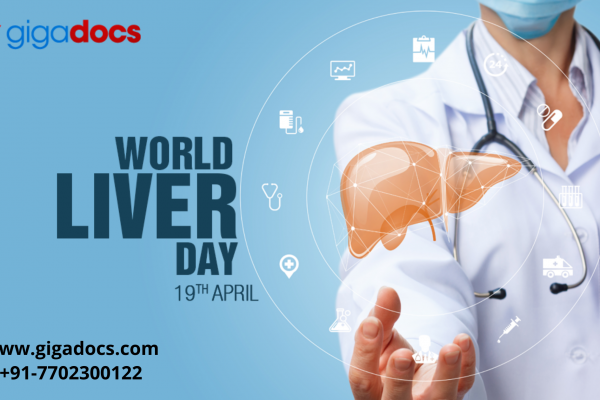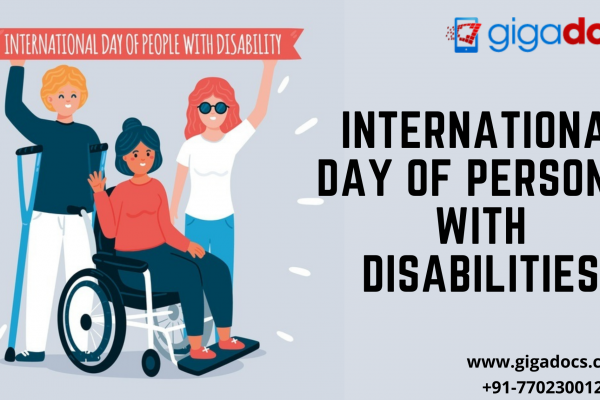According to UN estimates, India is the most populous country in the world, supporting over 67000 births per day. India contributes to one-sixth of the world’s childbirths; with the population so high, “Safe Motherhood” remains a topic for discussion when we analyze the population growth in India.
Safe Motherhood means providing quality healthcare services to pregnant women and new mothers to ensure a safe and healthy pregnancy and childbirth experience. Safe Motherhood also means that we as a society can prevent and manage complications that can arise during pregnancy and childbirth, including postpartum hemorrhage, pre-eclampsia, sepsis, and obstructed labor. On this National Safe Motherhood Day (NSMD), through this blog, let’s understand the meaning of safe Motherhood, pregnancy-related diseases that affect maternal Mortality, and prenatal care. We will also discuss how teleconsultation can help expectant and new mothers in their motherhood journey-
What does Safe Motherhood mean?
Safe Motherhood aims to reduce maternal mortality rates and improve maternal health by giving women access to prenatal care, skilled birth attendants, emergency obstetric care, and postnatal care. These services are essential for preventing maternal and infant deaths, improving the health and well-being of mothers and babies, and promoting gender equality and women’s empowerment.
How can we improve safe Motherhood among expectant and new mothers in India?
The following ways can go a long way to promote safe Motherhood among expectant and new mothers in India-
- Access to prenatal care: Regular prenatal care visits can help identify and manage complications early on and promote healthy pregnancy outcomes.
- Skilled birth attendance: Having a skilled health professional attend the delivery can help reduce the risk of maternal and neonatal mortality.
- Emergency obstetric care: Access to emergency care is crucial for managing complications that can arise during childbirth.
- Postnatal care: Postnatal care visits can help identify and manage any complications that arise after delivery and ensure that the mother and baby are healthy.
- Family planning: Family planning services can help women avoid unintended pregnancies, reduce the risk of maternal mortality and morbidity, and promote the health and well-being of mothers and children.
Safe Motherhood is critical for promoting maternal health, reducing maternal mortality rates, and ensuring every woman can experience a safe and healthy pregnancy and childbirth. Now that we have discussed why safe Motherhood is important let’s take a look at the National Safe Motherhood Day (NSMD)-
National Safe Motherhood Day (NSMD)
National Safe Motherhood Day (NSMD) is observed annually on April 11th in India to raise awareness about the importance of safe Motherhood and maternal health. The day was first observed in 2003 by the Indian government to address the high maternal mortality rate in India, a significant public health issue.
The National Safe Motherhood Day aims to promote the provision of accessible, affordable, and quality healthcare services to all women, especially those in rural and remote areas who often lack access to healthcare facilities. The day also aims to raise awareness about the importance of family planning, safe sex practices, and the need for early detection and timely treatment of pregnancy-related complications.
Pregnancy-related Diseases that Affect Maternal Mortality
Pregnancy-related diseases can increase the risk of maternal morbidity mortality, which refers to the death of a woman during pregnancy, childbirth, or within 42 days of delivery. According to the World Health Organization (WHO), about 830 women die every day from preventable causes related to pregnancy and childbirth.
Some of the pregnancy-related diseases that can increase the risk of maternal morbidity mortality include:
- Gestational diabetes: This is a type of diabetes that develops during pregnancy, usually in the second or third trimester. It can cause high blood sugar levels that can affect the health of both the mother and the baby.
- Preeclampsia: This is a severe condition that affects about 5% of pregnant women. It is characterized by high blood pressure and organ damage, such as the kidneys and liver.
- Gestational hypertension is high blood pressure that develops during pregnancy, usually after 20 weeks.
- Gestational thrombocytopenia: This condition causes a low platelet count during pregnancy, increasing the risk of bleeding.
- Hyperemesis gravidarum is a severe morning sickness that can cause vomiting and dehydration. It can also lead to weight loss and other complications.
- Group B streptococcus: This type of bacteria is found in the vagina or rectum of some women. It can cause the mother’s infections and be passed on to the baby during delivery.
- Infections: Certain infections, such as urinary tract infections and sexually transmitted infections, can be more common during pregnancy and cause complications.
- Preeclampsia and eclampsia: These are serious complications that can cause high blood pressure and seizures and can be life-threatening for both the mother and the baby.
- Hemorrhage: Excessive bleeding during pregnancy, childbirth, or postpartum can be fatal if not treated promptly.
- Obstructed labor: When the baby is too large to pass through the birth canal, it can cause prolonged labor, leading to infections, hemorrhage, and other complications.
Pregnant women must receive adequate prenatal care and access to skilled health professionals during childbirth to reduce the risk of maternal morbidity and mortality.
Expectant mothers and Prenatal care
Expectant mothers need regular prenatal care to monitor their health and ensure the best possible outcomes for themselves and their babies. Here are some reasons why prenatal care is essential during pregnancy:
- To detect and manage potential health problems: Prenatal care allows healthcare providers to identify and address any health problems that may arise during pregnancy, such as gestational diabetes and infections. Early detection and management of these conditions can prevent complications and improve outcomes for both the mother and baby.
- Monitor fetal development: Prenatal care includes regular ultrasound examinations to monitor fetal growth and development. This can help detect potential problems with the baby, such as abnormalities or growth restrictions, and allow for timely interventions.
- To Provide Education and Support: Prenatal care provides an opportunity for healthcare providers to educate expectant mothers on healthy behaviors during pregnancy, such as proper nutrition, exercise, and stress management. It also provides emotional support and counseling for any concerns or issues that may arise during pregnancy.
- Help to prepare for childbirth: Prenatal care includes discussions about childbirth options, pain management, and postpartum care. This can help expectant mothers prepare for the childbirth experience and ensure a smooth transition into Motherhood.
Tips for Postpartum Care
Postpartum care refers to the medical and emotional support provided to women after childbirth. It’s a critical period when the mother’s body is recovering from pregnancy and delivery and adapting to her new role as a mother. Here are some important aspects of postpartum care:
- Physical recovery: Postpartum care involves monitoring the mother’s physical recovery after childbirth, including any complications that may have arisen during pregnancy or delivery. This may include follow-up appointments with a healthcare provider to assess healing, manage pain, and address postpartum concerns.
- Breastfeeding support: Postpartum care includes providing breastfeeding support and education to new mothers, such as tips on positioning, latching, and milk supply. This can help ensure that the baby gets proper nutrition and that the mother is comfortable and confident with breastfeeding.
- Emotional support: Postpartum care also involves providing emotional support to new mothers, as the postpartum period can be challenging for many women. This may include counseling or referrals to support groups for postpartum depression or anxiety.
- Contraception counseling: Postpartum care includes discussing contraception options with the mother, as she may be at risk of becoming pregnant again soon after delivery which can help the mother plan her family and avoid unintended pregnancies.
- Family planning: Postpartum care also involves discussing family planning options with the mother, such as spacing out future pregnancies and ensuring access to reproductive health services.
Teleconsultation for Pregnancy Care
Teleconsultation-the remote consultation with an obstetrician and gynecologist through video, phone, or messaging platforms, can be an effective way to provide pregnancy consultation. Here are some ways in which teleconsultation can help expectant mothers-
- Convenience and accessibility: Teleconsultation can allow expectant mothers to access pregnancy consultations from the comfort of their homes without needing to travel to a healthcare facility. This can be particularly beneficial for women in rural or remote areas, those with mobility issues, or those who may have difficulty taking time off work for in-person appointments.
- Early detection and management of health issues: Teleconsultation can facilitate early detection of healthcare issues that raise pregnancy, such as high blood pressure, gestational diabetes, or infections. Remote monitoring of blood pressure, glucose levels, and other vital signs can help detect potential issues early on and allow for timely interventions.
- Improved patient engagement and education: Teleconsultation can facilitate more frequent and personalized communication between expectant mothers and healthcare providers. This can improve patient engagement and education, as healthcare providers can provide tailored information and advice based on the mother’s needs and concerns.
- Continuity of care: Teleconsultation can help ensure continuity of care by allowing expectant mothers to maintain regular contact with their healthcare providers throughout their pregnancy, even if they cannot attend in-person appointments.
- Reduced risk of exposure to infections: Teleconsultation can help reduce the risk of exposure to infections, both for expectant mothers and healthcare providers, particularly after the re-emergence of COVID-19.
Summing up, teleconsultation offers accessible and effective ways to deliver pregnancy consultation, improved patient engagement and education, continuity of care, and reduced risk of infection exposure. To know more about how teleconsultation can help you during pregnancy and postpartum care, download the Gigadocs teleconsultation app today-
Download the Gigadocs app from-
- IOS App – apple.co/2W2iG4V
- Android App – bit.ly/33AQoRC
To know more e-mail, at info@gigadocs.com




